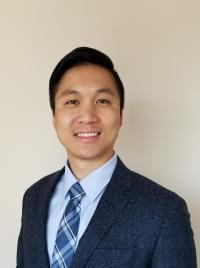Lung cancer is a deadly disease, and my research seeks to help afflicted patients live longer and live better.
The mission of Dr. Lok's laboratory is to improve the outcomes of lung cancer patients by understanding the mechanisms of therapeutic resistance and identifying novel therapeutic targets, particularly those related to DNA repair.
Understanding the predictive biomarker SLFN11 in small cell lung cancer (SCLC)
SCLC is a deadly disease that is initially sensitive to various DNA damaging therapies. Current therapy relies on two broadly used chemotherapeutic agents, cisplatin and etoposide. Identifying predictive biomarkers of response will allow for improved risk stratification and direct personalized therapy for these patients.
One biomarker that predicts for drug response to various DNA damaging therapies - including cisplatin, etoposide and PARP inhibitors - in SCLC is expression of a gene, SLFN11. However, little is known about how SLFN11 mediates therapeutic sensitivity. My laboratory is interested in understanding the mechanism of how SLFN11 sensitizes SCLC to these widely used therapies. By deepening our understanding of this novel biomarker, we will be able to develop future therapies that exploit these discoveries.
Epigenetic targeted therapies for SCLC
Recurrent targetable oncogenic driver mutations are rare in SCLC, instead a hallmark of this disease is loss of two well-known tumor suppressors, TP53 and RB1. Though pharmacologically targeting these pathways is currently difficult, a recent advance in understanding epigenetics and how it applies to SCLC has provided us a way forward in applying targeted therapeutics. We have shown that the dependency of SCLC on EZH2 activity (a methyltransferase that functions on H3K27 and adds a tri-methyl suppressive chromatin mark) leads to chemotherapeutic resistance that can be reversed with inhibitors against EZH2. Remarkably, impressive synergy of EZH2 inhibition with chemotherapy has led to durable responses in preclinical models. Further discovery of epigenetic pathways that are targetable and improve outcomes in SCLC could dramatically change the current treatment paradigm. We propose to leverage the expertise and resources available at the Structural Genomics Consortium to screen a library of epigenetic chemical probes to identify novel therapeutic approaches for SCLC.
Improving translational drug development with circulating-tumor-cell patient-derived xenograft (CDX) models
PDX models have been shown to more closely reflect the biology of their tumors of origin than cell line xenografts. Novel therapeutic testing in PDXs can also more accurately reflect the subsequent experience in human patients. However, PDX generation typically involves surgically resected specimens or core biopsies of sufficient tissue quality – both approaches can be difficult and unnecessary in SCLC patients.
A recent advance to overcome these barriers is the derivation of PDX models from circulating-tumor-cells (CTC) obtained from peripheral blood – known as CDX model. This innovation broadens the patient population who may be able to benefit from personalized xenograft models and allow for larger numbers of diverse tumor models for cancer research. We propose to establish and develop this expertise at our institute to increase availability of translationally relevant xenograft models to improve drug development and success in future clinical trials.





 https://orcid.org/0000-0002-3675-8847
https://orcid.org/0000-0002-3675-8847